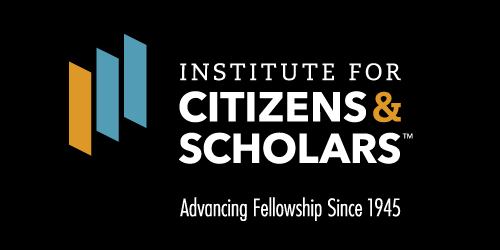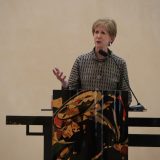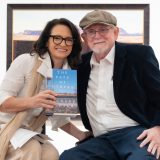
Latinx Revolutionary Horizons Book Manuscript Workshop
January 18, 2022
In December 2021, Dr. Renee Hudson, Assistant Professor of English in Wilkinson College of Arts, Humanities, and Social Sciences hosted a book manuscript workshop for her first book project, Latinx Revolutionary Horizons: Form and Futurity in the Américas. The workshop highlighted the work of Dr. Hudson who was awarded an Institute for Citizens and Scholars Career Enhancement Fellowship for the spring and fall of 2021. Dr. Hudson completed a draft of her book manuscript during her fellowship year and with the support of the Chapman University Faculty Opportunity Fund, she was able to share her research with colleagues, students, and distinguished scholars, including Kirsten Silva Gruesz (UCSC), Ricardo Ortiz (Georgetown), María Josefina Saldaña-Portillo (NYU) who provided feedback on her work, with Marissa López (UCLA) as the moderator. These scholars are experts in nineteenth-century and contemporary Latinx literature.
“With Latinx Revolutionary Horizons, Renee joins a relatively new swerve in Latinx studies, the swerve towards the analysis of Latinx literature, written by Latino artists, authors in the United States, within a hemispheric context. She also shows us how Latinx literature participates in the genres that are distinctly American as a consequence of conquest, racial formation, and imperialism,” said Saldaña-Portillo, whose first book, The Revolutionary Imagination in the Americas and the Age of Development (2003) inspired Dr. Hudson’s dissertation.
“Such workshops are becoming increasingly common among research institutions, particularly for places that require a book for tenure,” said Dr. Hudson. In a typical book manuscript workshop, readers outside of one’s home institution are invited to the workshop, where they come prepared with extensive feedback after reading the full-length manuscript. As noted in UCLA’s Junior Faculty Manuscript Workshop Program, “manuscript workshops have proven tremendously successful in supporting participants’ promotion to tenure. The workshops can ensure stronger and more rigorous manuscripts from first-time authors, increase the junior faculty members’ scholarly network and visibility on and off-campus.”
Dr. Hudson’s book argues that Latinx revolutionary horizons are a hemispheric project in which contemporary Latinx authors return to earlier moments of revolution to theorize the limits of liberation in the present and point toward more liberatory futures. She pairs nineteenth-century authors with contemporary Latinx ones to historicize contemporary Latinx literature and resistance. In doing so, she illuminates how the confluence of Spanish colonization and U.S. occupation led to the creation of genres capable of apprehending the unique historical circumstances of the Americas: the captivity narrative, the guerrilla conversion narrative, the Latinx dictator novel, and testimonio. By comparing colonialisms, this project charts revolutionary genealogies across movements as varied as the Mexican Revolution, the Filipino People Power Revolution, resistance to Trujillo in the Dominican Republic, and the Cuban Revolution.
“As the first Latinx literature scholar in Chapman’s Department of English, my book project, Latinx Revolutionary Horizons, will establish Chapman University as a space where exciting work in Latinx Studies is happening,” said Dr. Hudson.
Ultimately, this project contributes to both Latinx and Hemispheric Studies by putting ethnic and area studies in conversation with one another. In so doing, Dr. Hudson illuminates how Latinx literature underscores a shared heritage that illuminates new sites of revolutionary thought and more liberatory relations between the idea of “America” and Latinxs in the U.S.
“I see Renee’s work as being part of an important turn in literature, the Americas, broadly speaking, of reckoning meaningfully with the entire phenomena of anti-blackness and the denial of indigenous personhood and territorial claims…Renee’s book manuscript insists that the field confront the colonial and national roots of this intragroup – colorism, sexism, dispossession, which persist within the Latinx assemblage,” said Dr. Gruesz, author of the influential The Ambassadors of Culture: The Transamerican Origins of Latino Writing (2001), whose work examines what it means to write Latinx literary history when nation-based approaches dominate the field.
Latinx Revolutionary Horizons is also the basis for new classes Dr. Hudson plans to offer at Chapman, from robust offerings in Latinx literature to more specialized courses such as a course on literature and revolution that would forge new interdisciplinary connections: “I hope to teach additional courses based on my book project, including classes on the Latinx nineteenth-century, Latinx revolutionary thought, and a course on race and latinidad.”


